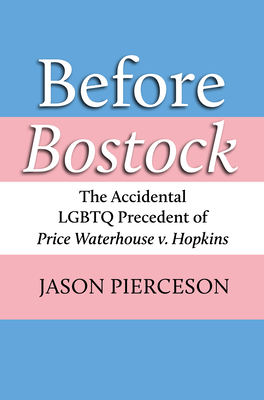On June 15, 2020, the Supreme Court ruled in Bostock v. Clayton County, in a 6-to-3 decision with a majority opinion authored by conservative Justice Neil Gorsuch, that Title VII of the Civil Rights Act of 1964 prohibited employment discrimination on the basis of gender identity and sexual orientation. The decision was a surprise to many, if not most, observers, but as Jason Pierceson explores in this work, it was not completely unanticipated. The decision was grounded in a recent but well-developed shift in federal jurisprudence on the question of LGBTQ+ rights that occurred around 2000, with gender identity claims faring better in federal court after decades of skepticism. The most important precedent for these cases was a 1989 Supreme Court case that did not deal directly with LGBTQ+ rights: Price Waterhouse v. Hopkins. The court ruled in Price Waterhouse that "sex stereotyping" is a form of discrimination under Title VII, a provision that prohibits discrimination in employment based upon sex. Ann Hopkins was a cisgender, heterosexual woman who was denied a promotion at her accounting firm for being too "masculine." At the time of the decision, and in the wake of the devastating decision for the LGBTQ+ movement in Bowers v. Hardwick (1986), the case was not viewed as creating a strong precedential foundation for LGBTQ+ rights claims, especially claims based upon sexual orientation. Even in the context of gender identity, the connection was not made to the emerging movement for transgender rights until a decade later. In the 2000s, however, federal courts were consistently applying the case to protect transgender individuals. While not the result of coordinated litigation, nor initially connected to the LGBTQ+ rights movement, Price Waterhouse has been one of the most important and powerful precedents in recent years outside of the marriage equality cases. Before Bostock tells the story of how this "accidental" precedent evolved into such a crucial case for contemporary LGBTQ+ rights. Pierceson examines the groundbreaking Supreme Court decision of Bostock v. Clayton County through the legal path created by Title VII of the Civil Rights Act of 1964 and the interpretation of the word "sex" over time. Focusing on history, courageous LGBTQ+ plaintiffs, and the careful work of legal activists, Before Bostock illustrates how the courts can expand LGBTQ+ rights when legislators are more resistant, and it adds to our understanding about contemporary judicial pol












